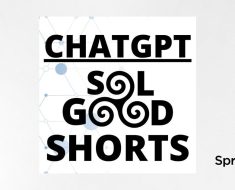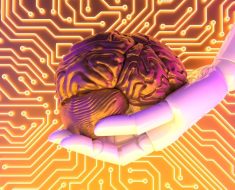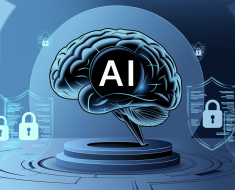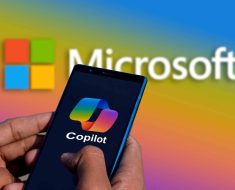School stress is a common challenge for both kids and parents. With the advent of artificial intelligence (AI), there’s a new wave of tools and strategies that can help alleviate this stress. Let’s explore some AI hacks that can make the back-to-school transition smoother and more manageable for everyone involved.
Understanding AI’s Role in Education


Artificial intelligence is transforming education by offering personalized learning experiences, improving efficiency, and providing emotional support. AI tools can analyze vast amounts of data to tailor educational content to a child’s unique learning style, helping them grasp complex concepts more easily. This personalized approach not only enhances understanding but also reduces frustration and stress associated with difficult subjects. Embracing these AI hacks allows parents to support their children’s learning journey effectively.
AI Hacks for Homework Help


One of the most immediate ways AI can reduce school stress is through homework assistance. AI-powered applications like Socratic and Quizlet provide step-by-step explanations and interactive learning methods, making it easier for students to tackle their assignments without feeling overwhelmed. These tools act as virtual tutors, offering support and guidance whenever needed, which can significantly reduce the anxiety associated with homework tasks. For a more comprehensive tool, consider using QuillBot, which offers paraphrasing and grammar checking to improve writing quality¹. Incorporating these AI hacks into your child’s study routine can make a noticeable difference in their academic experience.
Example Prompts for Homework Help:
- “Explain how to solve this algebra problem step-by-step.”
- “What are the main themes in ‘To Kill a Mockingbird’?”
- “Provide a summary of the American Revolution.”
Streamlining Study Schedules with AI


Managing time effectively is crucial for reducing school-related stress. AI tools can help create optimized study schedules that balance study time with breaks, ensuring students aren’t overwhelmed. By automating the scheduling process, AI allows students to focus more on learning and less on planning, which can lead to better academic performance and less stress. Microsoft Copilot is a great free tool that can assist in creating and managing study schedules². These AI hacks ensure that your child maintains a healthy balance between study and relaxation.
Example Prompts for Study Scheduling:
- “Create a study schedule for my child that includes breaks.”
- “Suggest the best times for my child to study math and science.”
Enhancing Mental Well-being with AI


AI isn’t just about academics; it also plays a vital role in supporting students’ mental health. AI-driven chatbots and virtual assistants provide a non-judgmental platform for students to express their emotions and receive immediate support. These tools can help alleviate stress by offering coping strategies and emotional support, making mental health resources more accessible. For younger children, tools like the Mindful AI tools by Morrama offer creative and engaging ways to manage emotions³. By integrating these AI hacks into daily routines, parents can support their children’s emotional well-being.
Example Prompts for Mental Well-being:
- “Help my child practice mindfulness exercises.”
- “Provide tips for managing stress before exams.”
Social Emotional Learning (SEL) and AI


Social Emotional Learning (SEL) programs, when integrated with AI, can help students develop critical emotional skills like resilience and collaboration. These skills are essential for managing stress and anxiety in an AI-centric educational environment. By fostering a balanced perspective on AI, SEL programs prepare students for a future where AI is prevalent, reducing anxiety and empowering them to navigate challenges confidently. Tools like Google’s AI Experiments provide engaging SEL experiences⁴. Utilizing these AI hacks can enhance your child’s social and emotional development.
Example Prompts for SEL:
- “Suggest activities to improve my child’s emotional intelligence.”
- “How can my child develop better collaboration skills?”
AI Tools for Teachers and Classrooms


AI isn’t just beneficial for students; it also supports teachers by reducing their administrative workload and allowing them to focus more on engaging with students. AI tools can grade assignments, provide real-time feedback, and analyze student performance, helping teachers identify when students need extra help. This support can create a more positive and less stressful learning environment for everyone involved. Microsoft Teams for Education offers AI-powered features to help teachers manage their classrooms more effectively². Incorporating these AI hacks into the classroom can lead to a more dynamic and supportive educational experience.
Example Prompts for Classroom AI Tools:
- “Analyze my child’s performance in math over the last semester.”
- “Provide feedback on my child’s recent essay.”
Addressing AI Anxiety


While AI offers numerous benefits, it’s important to address any anxiety students may have about interacting with these technologies. Educators and parents can help by promoting a balanced view of AI, emphasizing its potential benefits while addressing concerns. Encouraging critical thinking and open communication can mitigate anxiety and empower students to embrace AI as a helpful tool rather than a stressor. ChatGPT is a versatile tool that can help facilitate these discussions⁵. These AI hacks can help ease concerns and foster a positive attitude towards technology.
Example Prompts for Addressing AI Anxiety:
- “Explain the benefits of AI in education to my child.”
- “Discuss potential concerns about AI with my child.”
AI for Creative Learning


Encouraging creativity in learning can also reduce stress. AI tools for art and writing projects allow children to explore new forms of expression, making learning more enjoyable and less daunting. By providing innovative ways to engage with educational content, AI can help students develop a love for learning that transcends traditional methods. Google’s AI Experiments offers a variety of interactive tools to spark creativity and curiosity⁴. By integrating these AI hacks, parents can nurture their child’s creative potential.
Example Prompts for Creative Learning:
- “Generate a creative writing prompt for my child.”
- “Suggest art projects that incorporate AI tools.”
Conclusion: Embrace AI for a Stress-Free School Year
Incorporating AI into your child’s education can significantly reduce school-related stress for both students and parents. From personalized learning and homework assistance to mental health support and creative projects, AI offers a wide range of tools and strategies to make the educational journey smoother and more enjoyable. By embracing these AI hacks, you can help your child thrive academically and emotionally, setting them up for success in the classroom and beyond.
Citations
- QuillBot. (2024). QuillBot: Paraphrasing and Grammar Checking Tool.
- Microsoft Education. (2024). Get Started with Free AI Tools from Microsoft Education.
- Morrama. (2024). Mindful AI Tools for Kids.
- Google AI Experiments. (2024). Interactive AI Tools for Creativity.
- OpenAI. (2024). ChatGPT: Conversational AI for Education.




